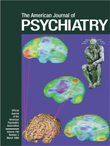Neurosurgery for Obsessive-Compulsive Disorder: Problems With Comorbidity
Ms. A, a 32-year-old single woman with long-standing OCD, had symptoms including cleaning compulsions, buying things on the “right day,” and the drive to eliminate “bad” or imperfect aspects of herself and her environment. Ten years of treatment, including behavior therapy and serotonin reuptake inhibitors with augmentation, resulted in no improvement. She depended on her family for financial support and could not complete her college degree. Her clinical picture was complicated by bulimia, kleptomania, and borderline personality disorder. There was a previous history of major depressive disorder, but she was not having an episode before the surgery.Ms. A underwent bilateral anterior capsulotomy and had almost complete elimination of her OCD symptoms. Over the next several months, however, her kleptomanic and bulimic behaviors increased, despite some evidence suggesting these “OCD spectrum disorders” might respond to treatments for OCD (1). She also had a recurrence of severe major depression, which had thus far been unresponsive to four antidepressant trials.
References
Information & Authors
Information
Published In
History
Authors
Metrics & Citations
Metrics
Citations
Export Citations
If you have the appropriate software installed, you can download article citation data to the citation manager of your choice. Simply select your manager software from the list below and click Download.
For more information or tips please see 'Downloading to a citation manager' in the Help menu.
View Options
View options
PDF/EPUB
View PDF/EPUBGet Access
Login options
Already a subscriber? Access your subscription through your login credentials or your institution for full access to this article.
Personal login Institutional Login Open Athens loginNot a subscriber?
PsychiatryOnline subscription options offer access to the DSM-5-TR® library, books, journals, CME, and patient resources. This all-in-one virtual library provides psychiatrists and mental health professionals with key resources for diagnosis, treatment, research, and professional development.
Need more help? PsychiatryOnline Customer Service may be reached by emailing [email protected] or by calling 800-368-5777 (in the U.S.) or 703-907-7322 (outside the U.S.).

